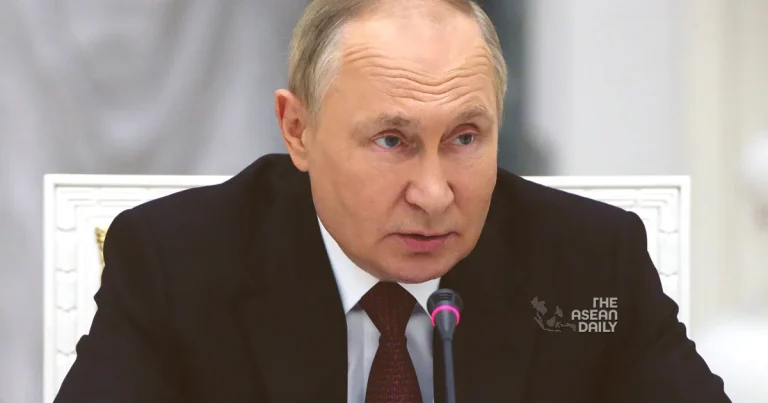28-7-2024 (MOSCOW) Russian President Vladimir Putin has ratcheted up tensions with the West by threatening to resume production of intermediate-range nuclear weapons, should the United States proceed with plans to deploy missiles in Germany or elsewhere in Europe. The ominous declaration came during a naval parade in Saint Petersburg, marking a potential escalation in the already strained relations between Russia and NATO countries.
“If the United States carries out such plans, we will consider ourselves liberated from the unilateral moratorium previously adopted on the deployment of medium- and short-range strike capabilities,” Putin stated, his words echoing across the assembled naval vessels. The Russian leader went on to reveal that the development of several such weapon systems is already in its final stages, hinting at Russia’s readiness to respond swiftly to any perceived threats.
Putin’s comments come in the wake of a recent announcement by Washington and Berlin regarding the “episodic deployments” of long-range US missiles, including Tomahawk cruise missiles, to Germany, scheduled to begin in 2026. This move has clearly touched a nerve in Moscow, with Putin expressing concern that “important Russian administrative and military sites” would fall within the range of these missiles, potentially leaving Russian territory vulnerable to strikes launched with as little as 10 minutes’ warning.
The Russian president drew parallels between the current situation and the Cold War era, specifically referencing the deployment of American Pershing missiles in West Germany during the 1980s. “This situation reminds us of the events of the Cold War linked to the deployment of American Pershing medium-range missiles in Europe,” Putin observed, tapping into historical anxieties that continue to shape Russian strategic thinking.
Putin’s threats mark a potential unravelling of arms control measures that have been in place since the end of the Cold War. The Intermediate-Range Nuclear Forces Treaty, signed by the US and Soviet Union in 1987, had prohibited the deployment of missiles with ranges between 500km and 5,500km. However, both nations withdrew from the treaty in 2019, each accusing the other of violations.
The Kremlin’s reaction to the proposed US deployments has been consistently stern. Earlier in July, Russian officials warned that European capitals could become targets for Russian missiles if the US plans were to materialise. Kremlin spokesman Dmitry Peskov summed up the mounting tensions, stating, “We are taking steady steps towards the Cold War. All the attributes of the Cold War with the direct confrontation are returning.”




